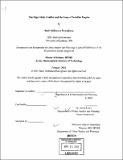| dc.contributor.advisor | David Laws. | en_US |
| dc.contributor.author | Enwegbara, Basil Odilimson, 1960- | en_US |
| dc.contributor.other | Massachusetts Institute of Technology. Dept. of Urban Studies and Planning. | en_US |
| dc.date.accessioned | 2011-09-13T17:43:00Z | |
| dc.date.available | 2011-09-13T17:43:00Z | |
| dc.date.copyright | 2001 | en_US |
| dc.date.issued | 2001 | en_US |
| dc.identifier.uri | http://hdl.handle.net/1721.1/65723 | |
| dc.description | Thesis (S.M.)--Massachusetts Institute of Technology, Dept. of Urban Studies and Planning, 2001. | en_US |
| dc.description | Includes bibliographical references (leaves 133-143). | en_US |
| dc.description.statementofresponsibility | by Basil Odilimson Enwegbara. | en_US |
| dc.format.extent | 143 leaves | en_US |
| dc.language.iso | eng | en_US |
| dc.publisher | Massachusetts Institute of Technology | en_US |
| dc.rights | M.I.T. theses are protected by
copyright. They may be viewed from this source for any purpose, but
reproduction or distribution in any format is prohibited without written
permission. See provided URL for inquiries about permission. | en_US |
| dc.rights.uri | http://dspace.mit.edu/handle/1721.1/7582 | en_US |
| dc.subject | Urban Studies and Planning. | en_US |
| dc.title | The Niger Delta conflict and the irony of invisible empire | en_US |
| dc.type | Thesis | en_US |
| dc.description.degree | S.M. | en_US |
| dc.contributor.department | Massachusetts Institute of Technology. Department of Urban Studies and Planning | |
| dc.identifier.oclc | 48272498 | en_US |
